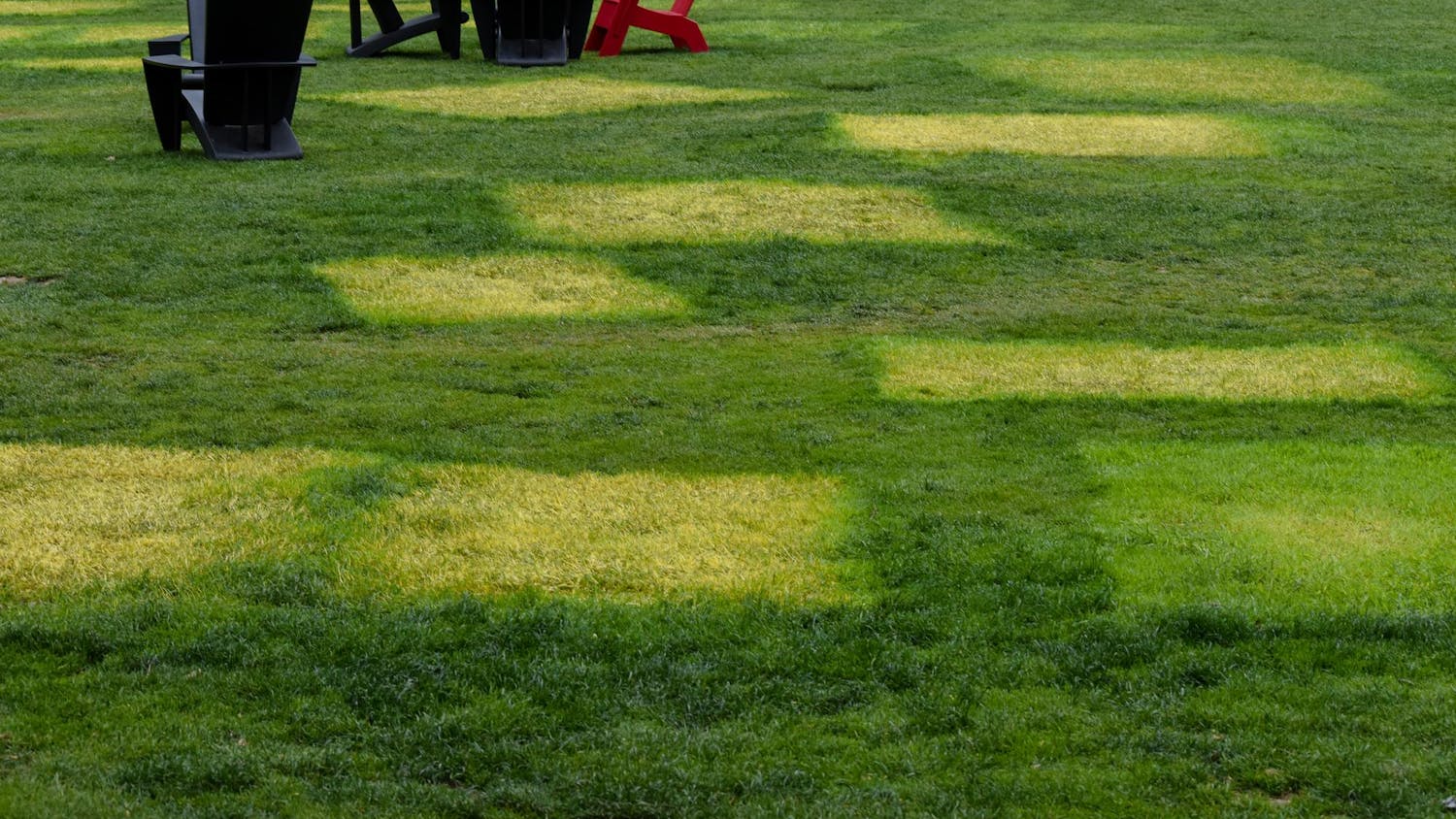For the second day in row, the Occupy College Hill movement mustered a presence on the Main Green. Roughly 40 supporters of the movement assembled at noon to discuss how to ensure that the interests of 99 percent of Americans will no longer be subverted by the interests of the wealthiest 1 percent.
The central topic of debate was whether the group's members should shift their collective weight behind the larger Occupy Providence movement or continue to organize on campus.
"On one hand, we want to mobilize the not-insignificant resources of College Hill in support of Occupy Providence," said Julian Park '12, a member of Occupy College Hill's media working group and a Herald opinions columnist. "On the other hand, people recognize that there are a lot of problems in our own community that we have direct control over — and then, too, a lot of elements that are related to the rest of Providence."
He pointed to the University's ongoing contract negotiations with Department of Facilities Management workers as an example of an issue with impact both on and off College Hill.
The Occupy movement began with Occupy Wall Street assemblies in New York City last week. The movement has yet to articulate a specific set of demands. The movement's unifying trait is a sense of frustration with "the destruction of a middle class, social mobility and the failing efficacy of the traditional means to security in American society," wrote Alexander Tobolowsky GS, a participant in Occupy College Hill, in an email to The Herald.
"The reason there's not a cohesive message is because it's an occupation, not a protest," Park said. "Occupy College Hill's members care about immigration issues, the impact of war, environmental issues, gender discrimination, sexual orientation — we're opposed to oppression in all forms."
But even individual members seem not to have a clear idea of what they hope the movement will accomplish. Some see it simply as an outlet in which to speak out against the status quo.
"The movement seeks to model this new way of being and talking about social issues while also expressing anger and taking action against particular examples of injustice and exclusion," wrote Timothy Syme GS in an email to The Herald. "This is an organic movement, driven by its participants, and no one can therefore decide or predict where it will go."




